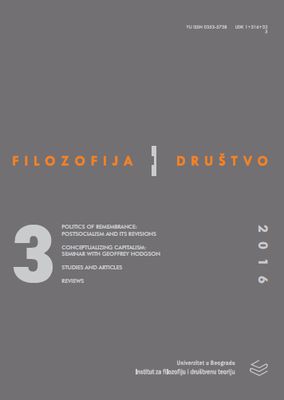How Does the Use of “Culture” and “Tradition” Shape the Women’s Rights Discourse in Transitional Serbia?
How Does the Use of “Culture” and “Tradition” Shape the Women’s Rights Discourse in Transitional Serbia?
Author(s): Sara PetrovskiSubject(s): Anthropology, Gender Studies
Published by: Institut za filozofiju i društvenu teoriju
Keywords: culture; tradition; women’s rights; public discourse; EU; Serbia; Balkan
Summary/Abstract: Although social anthropologists have mostly abandoned the essentialist view of “culture” and “tradition”, these static notions are still frequently used in Serbian public discourse regarding women’s rights. I believe that analysing the production of cultural meaning and knowledge among different social actors and the state is important when exploring the implementation, transformation and protection of women’s rights at a local level. In this article, I shall investigate how “culture” and “tradition” are being constructed and used by certain right wing groups, political leaders, intellectuals and by the Serbian Orthodox Church. On one side, arguments of “culture” and “tradition” are used in order to “preserve the national identity” and save it from “imposed Western norms” and “Western imperialism”, while on the other, they are used to explain the cultural obstacles regarding the effective protection of women’s rights. “Tradition”, often constructed as a linear project of inherited “cultural” and “moral” values and practices, stands in opposition to the EU; therefore, it calls to be nurtured and protected or changed and abandoned. Consequently, I see women rights issues trapped into a pro-EU or against EU, pro-traditional values or pro-liberal values discourse. I conclude that women rights in Serbia are and probably will be affected more by the use and abuse of different concepts of “culture” and “tradition”.
Journal: Filozofija i društvo
- Issue Year: 27/2016
- Issue No: 3
- Page Range: 679-694
- Page Count: 16
- Language: English

